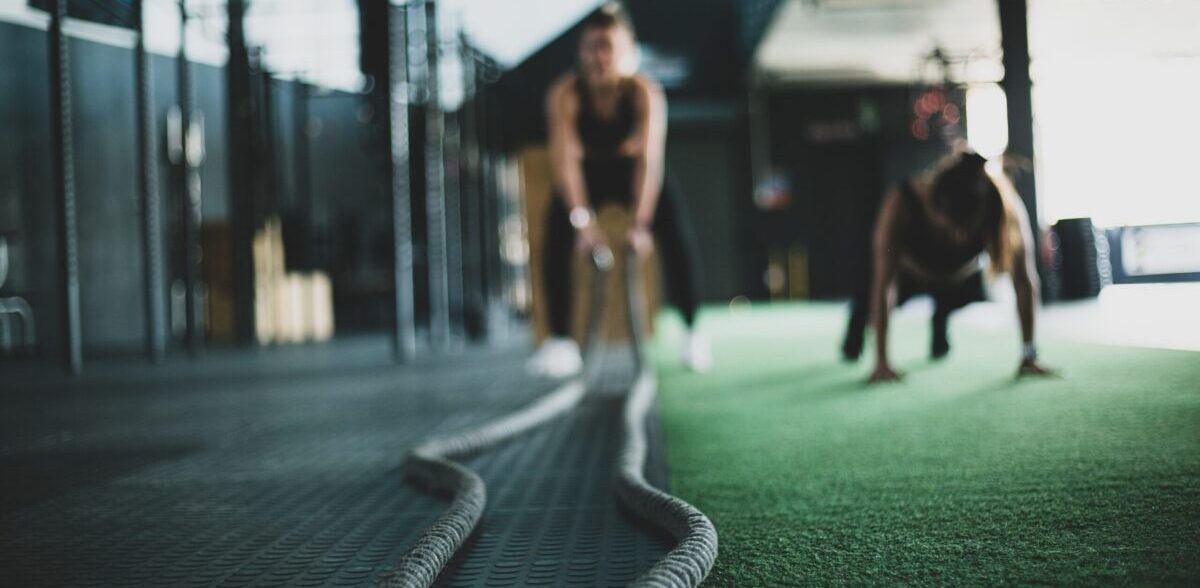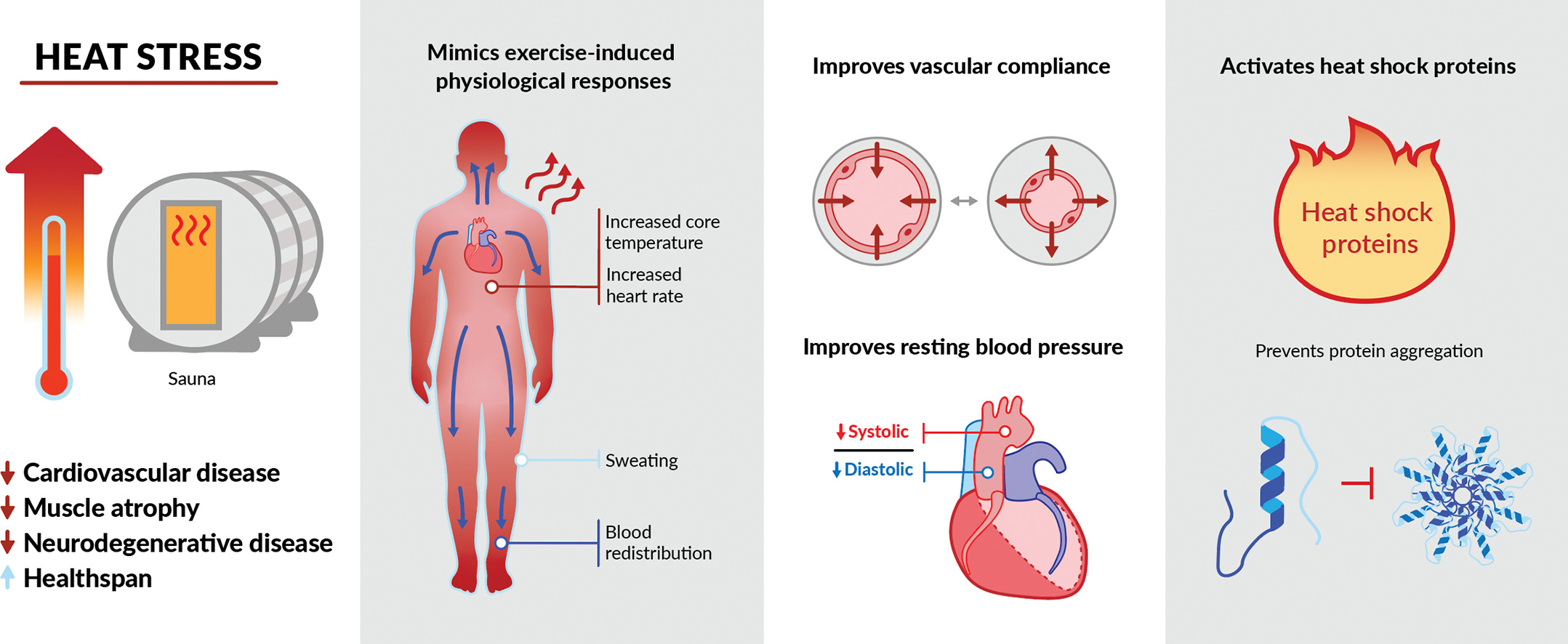To sauna after workout or not, that’s the question. Whether you’re a gym bunny or not, you’ve probably noticed that many of the best workout hotspots boast a sauna or steam room to complement your workout. Besides being a great way to relax and unwind – many studies have now shown that saunas, in particular, offer several amazing benefits, many of which are heightened when taken post-workout.

What are the different sauna types?
Before diving into the benefits of the sauna after a workout, it’s important to understand the different types of sauna:
A wet/steam sauna
A steam sauna is commonly misunderstood name. Whilst it’s commonplace to see visuals of sauna stones with water being poured over them (producing steam), when people refer to a wet sauna or a steam sauna, they usually referring to steam room! These aren’t really saunas at all, since unlike a sauna, steam rooms (or steam baths) are more or less sealed to trap the steam in.
They have a much greater level of humidity compared to a sauna, and you’ll even see condensation build up on the walls and ceiling.
Dry sauna
A dry sauna (or traditional sauna) is a wooden room or building that’s heated to high temperatures to produce a dry heat. This is usually done with a wood burning stove, where that’s not practical, an electric stove can produce a similar effect.
In this type of sauna, you may be familiar with producing low levels of steam, by pouring water over hot stones, but the overall level of humidity remains minimal (usually no more than 10-20%). Unlike a steam room, a sauna is designed to make you sweat, which can have several health benefits.
Infrared saunas
Infrared saunas are a relatively new phenomenon. This type of sauna usually consists of room just the same as a traditional sauna. However, instead of a hot stove, infrared light is used to heat the users, rather than the room itself. Sweating can be achieved at lower temperatures, since the heat penetrates the neuromuscular system. But the research on benefits (and potential dangers) of Infrared saunas is still in its infancy.

Benefits of taking a sauna after a workout
You may have already seen that taking a sauna regularly comes with a range of health benefits, as of course does regular exercise. But did you know that there is mounting clinical evidence showing that when you combine the two you’ll see even greater effects?
Sauna Benefits After Workout
- It accelerates your muscle recovery
- It may help your body release toxins and clear your skin through sweat
- The heat relieves muscle pain
- It can lead to improved cardiovascular health
- It aids in weight loss by elevating your metabolic rate
- It leads to improved mental health by relieving stress
We take a closer dive into each of these below.
1/ Muscle Recovery: Accelerated Muscle Recovery Through Increased Blood Circulation
Does having a sauna after exercise aid muscle recovery? Absolutely!
When you exercise, you work your muscles harder than they’re usually accustomed to. This causes them to form microscopic tears – which in turn causes inflammation (and over time muscle growth and improved strength as your body recovers). This is also the reason you may feel soreness, sensitivity, cramps or a tightening sensation.
Using a sauna after a workout speeds up this recovery process.
When you expose your body to heat, your muscles relax better, which first and foremost relieves tension and soreness. It also increases your blood circulation, in fact blood flow nearly doubles in a sauna, meaning your muscles will be exposed to more oxygen-rich blood and removes more ‘waste’ back to the kidneys. This improved ‘waste management’ leads to faster recovery, less soreness, and overall improved tissue health, which is exactly why taking a sauna after a workout speeds up your recovery.
A study in 2013 also concluded that taking a single sauna bath post-workout reduces oxidative stress caused by your workout by as much as 17.5%!

2/ Releases Toxins; Post-Workout Sauna Helps Clear Your Body Of Heavy Metals And BPA’s
Did you know that even after a short stint in the sauna, the average person will expel a pint of sweat? When you work out, sweat helps you keep cool, but it’s also believed to be a way for your body to releases toxins (also referred to as metabolic waste).
Numerous studies have now shown that sweat helps remove harmful BPAs, PCBs, and heavy metals from the body.
A 2015 study also showed that sweat binds with bacteria. Since it also removes dead skin cells and flushes bacteria from the epidermis, sweating is a great way to keep your skin glowing.
All-in-all, purging your body in this way, especially after exercise means you benefit from an added [painless] detox and better circulation.
3/ Sauna Bathing After a Workout Relieves Muscle Pain
Whether you suffer from chronic joint/muscle pains or have had a particularly tough workout – taking a sauna after exercise will help relieve muscle aches. That’s because blood vessels dilate in a sauna and blood flow is increased. This combination reduces tension in joints and sore muscles.
4/ Improved Cardiovascular Health & Reducing Blood Pressure
Many studies show one of the key benefits of using a sauna after a workout can not only decrease blood pressure overall, it can improve several other aspects of cardiovascular function. Whilst you won’t be able to substitute your marathon training for a few saunas, it has been shown to improve your endurance and stamina long term.
One reason for this may be because when you take a sauna, the dry heat and vapours help to loosen mucus and toxins from the respiratory system. In doing so, your lungs can breathe more efficiently and have better access to oxygen at a cellular level, which is crucial for exercise recovery.
An international medical study in 2015 even concluded that the risk of mortality from heard disease was 27 percent lower in those who regularly sauna bathed. The study was based on 2,300 Finnish men. Of those, the ones who reported sauna bathing 2-3 times a week instead of only once a week showed better heat health.
A study in 2021 also showed that frequent sauna use mimics the responses induced in your body during exercise. It may protect against cardiovascular and neurodegenerative disease and preserves muscle mass.
5/ Pairing Saunas With Exercise Accelerate Weight loss
You may have read about how much weight you can lose after a single sauna after workout session. In reality, this sort of hype isn’t helpful to those who are serious about their weight goals. Any fluctuations you see from a single sauna session are typically associated with a loss of water weight, which you’ll likely put back on as soon as you rehydrate.
There is good news though! When you regularly sauna after a workout you will start to see the long-term weight-loss benefits. But why? I hear you ask. In truth, it’s a combination of several factors.
The main factor is due to the hot temperature. It will supercharge your metabolism. Since your heart will be pumping faster long after you sauna you’ll burn extra calories.
As added perks, you’ll also experience better sleep, and get an elevated mood due to the extra endorphins released. People who sleep better and are happier are better equipped at managing their weight and lifestyle habits.
6/ Mental health & Stress relief
There’s mounting evidence to show that sauna bathing can improve mental health. Sauna use has been linked to improved mood, reduced depression, and reduced risk of developing psychotic disorders. Sauna use can also improve muscle circulation as mentioned before; this includes one of your most important muscles, the brain. This uplift to nerve and muscle function can help reduce symptoms of fatigue giving you that all important energy boost.
“The investment in a jacuzzi, sauna, and ice bath is to take care of my body, but also my mind.”
Joe Wicks aka The body coach
7/ It Enhances Your Endurance with VO2max and Lactate Threshold Gains
Exposing your body to heat after exercise can increase your VO₂max (the maximum amount of oxygen your body can use) and raise your lactate threshold, meaning you can train harder and longer before fatigue kicks in.
In a 2007 study, competitive runners who added sauna sessions after their workouts improved these key endurance markers without increasing their actual training time or intensity. Think of it as getting a “bonus workout” effect—more performance benefits without the added wear and tear on your joints and muscles.
Here’s another powerful way post-exercise sauna use can enhance your endurance – it increases your plasma volume (the liquid part of your blood). Why does that matter? More plasma means your heart can pump more blood with each beat, delivering oxygen more efficiently to your muscles during exercise.
Research with competitive cyclists found that adding sauna time after training significantly increased plasma volume, which translated into improved endurance performance. It’s the same physiological trick elite athletes use during heat-training camps, helping your cardiovascular system operate at peak efficiency whether you’re on a bike, running a trail, or just powering through a busy day.
Are there any cons to taking a sauna after a workout?
Now that we’ve looked at benefits of a sauna after workout, it’s important to consider any negative effects it could have. Although, you’ll be pleased to hear there aren’t many!
It exacerbates dehydration
We all know how important it is to stay hydrated when exercising. If you take a sauna after working out, you’re only going to exaggerate the problem if sweating and water loss. Thankfully, that can be combated by ensuring you keep drinking. By drinking at least one full glass before and after your sauna, you should be able to stave off dehydration, but be sure to keep up your water intake throughout the day too.
Discomfort
Not everyone tolerates high temperatures well. For some, taking a sauna – especially when you’re already hot and sweaty – can sound like a worst nightmare. It’s important to listen to your body’s cues. Saunas don’t suit everyone. If you find yourself feeling lightheaded, dizzy experiencing leg pain or any airway irritation, it’s best to calmly make your way out, and let your body gradually cool down.
Mens/women’s health
It’s bad news for men, as some studies have shown that sauna use can reduce sperm count – even if it’s just temporarily. It’s also worth noting that saunas may not be safe for pregnant women. Both men and women’s health and sauna use needs more research.
5 Tips on taking a sauna after working out
So you’ve decided to hit the sauna after your next workout. If you’ve never been before, it can feel a little daunting, so we’ve put together 5 awesome tips to guide you.
- Keep it short – If you’ve not experienced saunas previously, particularly very hot saunas, it’s to only stay a few minutes at first and work your way up. In total you should only be going for up to 20-minutes. This is to avoid over-exerting your body.
- Stay hydrated – Your body will already be craving water from your workout. Be sure to listen to your body and keep up your fluid intake before. In fact the or American Academy of Family Physicians recommend at least 8 ounces of water after working out. Since you’ll then be losing more fluids during your sauna bathing, be sure to continue drinking generously long after your session too.
- Take a towel – This is basic sauna etiquette in both public and private saunas. Sauna rooms are designed to make you sweat profusely so you should sit on a clean, absorbent towel.
- Shower beforehand – This avoids tracking dirt into the sauna and also clears your pores before you start. Remember to dry off completely before entering.
- Get cleared by a doctor – You will want to get the go ahead from a medical professional before you start sauna bathing if you have any ailments. In particular if you have respiratory issues, cardiovascular issues, or if you are pregnant.
FAQs on the health benefits of saunas after a workout
Whilst we’ve established that working out goes hand in hand with sauna culture, the order in which you do either activity matters. You should always take a sauna after working out, not before.
As we’ve discussed above, taking a sauna makes you sweat, a lot. Feeling dehydrated before a workout is far from ideal. It can also drain your energy levels leading to poorer performance.
Possibly even more damaging, can be working out with totally relaxed muscles. It means you’ll be more likely to pull something or hurt yourself.
In short, if you’re planning to mix the two activities, be sure to take your sauna after your workout, not before.
Sweat is one way your body tries to cool itself down during a sauna. Wiping off sweat during a sauna means your body will try to produce more sweat. This can be beneficial if you’re trying to expel as many toxins as possible, but do make sure you keep yourself hydrated.
By using a sauna after exercise you can reduce that soreness. The heat opens up your blood vessels and relaxes muscles. That makes your body better able to carry oxygen and nutrients to those tired muscles, aiding in recovery.
A 2006 study showed that using a sauna after your workout can reduce muscle soreness by up to 47% just 24 hours after your session.
Yes, research has shown that saunas help the body burn calories. Not only does sweating burn calories, but saunas increase the heart rate by as much as 30 percent which contributes, too. The number of calories burned in the sauna will depend on an individual’s unique body and how much energy they use while sweating.
However, it is important to note that using a sauna alone won’t do any good if an individual is not also reducing their caloric intake. Individuals must eat fewer calories than they are burning through exercise in order to lose weight.

Looking for your own home sauna?
Browse our beautiful collection of outdoor sauna buildings.
 +372 5552 6261
+372 5552 6261


